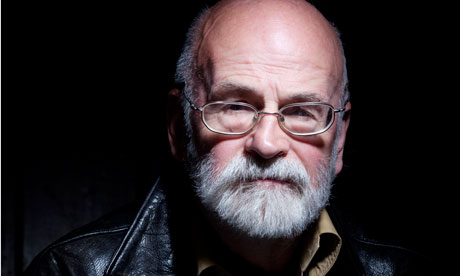
There's currently much newspaper fuss about the fact that Terry Pratchett's documentary Choosing to Die, screening on BBC2 on Monday, will show the assisted death of a terminally ill patient called Peter at the Dignitas clinic in Switzerland. This, objectors argue, is the breaking of the ultimate TV taboo, another dangerous blind turn in the moral maze of broadcasting.
Yet, as often when a TV show jumps on to front pages, the row is less ground-breaking than it seems. As recently as 12 May, a cancer patient called Gerald was shown at the moment of death in the BBC1 series Inside the Human Body. And as long ago as 1998 the final minutes of Herbie appeared in Robert Winston's The Human Body, although, because the producers were vague about whether we were actually witnessing the threshold breaths, that programme suffered less controversy.
Even if the argument is that it is more controversial to screen euthanasia deaths than natural ones – because of the potential illegality and risk of imitation – Pratchett's Peter is not the first to die in this way on TV. In December 2008, the Sky Real Lives channel showed the elective medical death of Craig Ewert. So, if Monday's film does represent a broadcasting landmark, it's the first mercy killing to be televised in Britain on a channel not owned by Rupert Murdoch and, although the third death moment to be screened by the BBC, the first in which that moment is chosen by the patient.
The main reason each televised death is treated as an unprecedented breach of taste is that the print media are deeply suspicious of TV both institutionally (rooted in the ancient fear that telly would kill Fleet Street) and, in some cases, specifically: rival interests in television. The implication that the BBC is running snuff documentaries is a useful nuclear weapon in this war.
No death should be shown lightly and there are clearly issues of consent and context: for me, the dying moment should never be screened in isolation in news shows or trailers. But, with proper editorial control, these brave participants are a legitimate element in TV's medical reportage.

